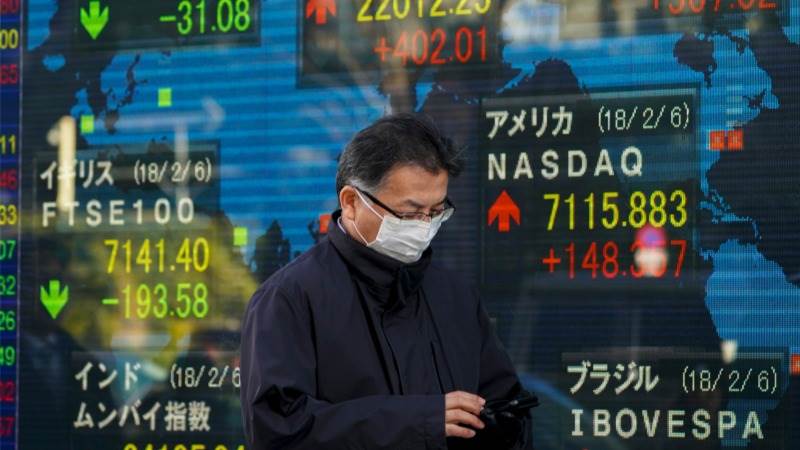Asian stocks lower, dollar strengthens ahead of key US inflation data, amid Covid
Asian stocks declined and the dollar held steady on Friday as traders shied away from risky assets amid renewed fears over COVID-19 and ahead of key US inflation data that could set the direction for Federal Reserve rates.
The broadest index of Asia-Pacific equities outside Japan, MSCI, lost 0.4%, while Japan's Nikkei index fell 0.5%.
The S&P 500 lost 0.72% overnight and the Nasdaq Composite fell 1.71%. In Asian hours, S&P 500 futures were up 0.14%.
Equities and risk-friendly currencies performed well early in the week. The MSCI regional benchmark index had its best day in two months on Tuesday, helped by signs that the Omicron strain of the new coronavirus may not be as damaging to the economy as initially feared.

"Then, towards the end of the week, the fact that Europe has moved much more clearly into lockdown mode and the number of cases is rising and the number of COVID-19 cases in the US is starting to rise has changed things a bit," said Rob Carnell, head of research for Asia Pacific at ING.
"There's also a slight sense of 'let's not take too much risk this weekend'. Of course there's the US Consumer Price Index - but I think we've all woken up to the fact that the US is now inflationary," he added.
The US consumer price index (CPI) for November is due to be released on Friday and economists polled by Reuters expect it to rise 6.8% year-on-year, surpassing the 6.2% rise in October, the fastest increase in 31 years.
Any upward surprise is likely to be interpreted as an argument for a faster Fed unwinding and a sooner interest rate hike.
Shares in China's Evergrande Group lost 1.5% after Fitch downgraded it to restricted-default status.
The Hong Kong benchmark lost 0.24%, but global markets were far less worried about the latest development in the protracted Evergrande saga than a few months ago.
"This issue has been going on for two and a half months and markets don't seem as concerned because a default on Evergrande's offshore debts seemed very likely," said Shane Oliver, head of investment strategy at AMP Capital.
Also, according to Exness เข้าสู่ระบบ in China, the central bank on Thursday required financial institutions to hold more foreign currency in reserve for the second time this year, which was seen by markets as an attempt to slow the recent rapid appreciation of the yuan.
The yuan lost about half a percent in offshore trading on Thursday and weakened further on Friday to 6,385.
Movements in other currencies were in line with a broad mood of de-risking. The dollar held steady, the euro, which fell 0.4 per cent overnight, remained under pressure and the Australian dollar declined.
US Treasury yields fell slightly overnight, with the benchmark 10-year Treasury bond rate at 1.4888%.
Oil also declined. US crude fell 0.5% to $70.56 a barrel. Brent crude oil fell 0.47% to $74.08, while gold, however, rose on the turmoil. The spot price rose 0.2% to $1777.8 an ounce.
More news: Global equities hit a one-month high on falling bond yields and rising tech stocks
